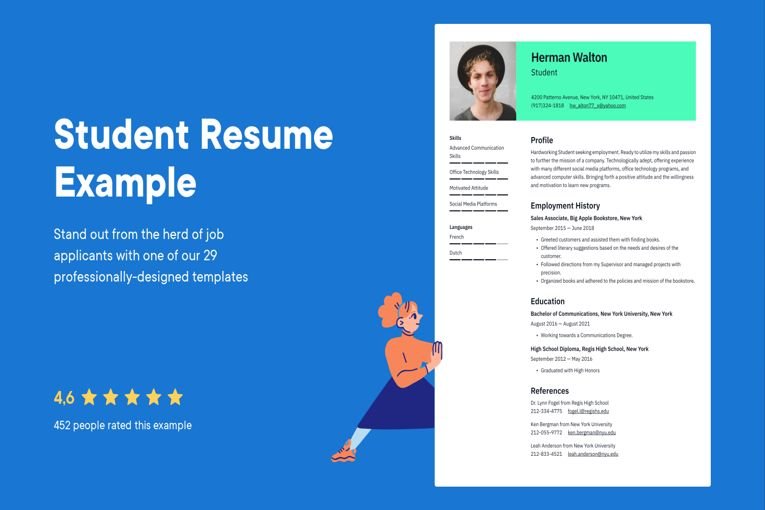Introduction
Creating a professional resume as a student is a crucial step in setting yourself up for success in the job market. Your resume is often the first impression a potential employer will have of you, so it’s essential to make it stand out. In this article, we will discuss the key elements of building a professional resume as a student to help you showcase your skills, experience, and achievements effectively.
1. Choose the Right Format
When creating your resume, it’s important to choose the right format that best highlights your qualifications. As a student, you may opt for a chronological format, listing your experiences in reverse chronological order, starting with the most recent. Alternatively, a functional format can be used to emphasize your skills and accomplishments rather than your work history. A combination format may also work well for students, blending both chronological and functional elements.
2. Include a Strong Summary or Objective
Begin your resume with a compelling summary or objective statement that briefly highlights your key skills, experiences, and career goals. This section serves as an introduction to your resume and should grab the employer’s attention, showcasing what makes you a strong candidate for the position.
3. Highlight Your Education
As a student, your education section is a critical component of your resume. Include the name of your institution, degree program, expected graduation date, and any relevant coursework or academic achievements. You may also mention your GPA if it is impressive or relevant to the position you are applying for.
4. Showcase Relevant Experience
Even as a student, you likely have some experience that is relevant to the positions you are applying for. Include any internships, part-time jobs, volunteer work, or extracurricular activities that demonstrate your skills and qualifications. Focus on showcasing experiences that are directly related to the job you are seeking.
5. Emphasize Your Skills
In addition to your work experience, make sure to highlight your skills on your resume. Include both hard skills, such as proficiency in specific software or languages, and soft skills, like communication and teamwork. Tailor your skills section to align with the requirements of the job you are applying for.
6. Use Action Verbs and Quantify Achievements
When describing your experiences on your resume, use action verbs to convey your accomplishments effectively. Instead of simply listing job duties, describe how you contributed value to the organization. Additionally, whenever possible, quantify your achievements with numbers or percentages to provide concrete evidence of your success.
7. Include Relevant Projects or Portfolio
If you have completed any noteworthy projects or have a portfolio of your work, consider including them in your resume. This can help demonstrate your skills and expertise in a tangible way, giving potential employers a deeper insight into your capabilities.
8. Customize Your Resume for Each Job Application
Avoid sending out the same generic resume for every job application. Tailor your resume to each position by highlighting the most relevant experiences, skills, and achievements that align with the job requirements. This shows employers that you have taken the time to understand their needs and are genuinely interested in the role.
9. Proofread and Edit Carefully
Before submitting your resume, make sure to proofread it carefully for any errors in grammar, spelling, or formatting. Ask a friend, mentor, or career services professional to review your resume as well, as a fresh set of eyes can catch mistakes you might have missed. A polished and error-free resume demonstrates your attention to detail and professionalism.
10. Seek Feedback and Continuous Improvement
Lastly, don’t be afraid to seek feedback on your resume from professionals in your field or career advisors. Constructive criticism can help you identify areas for improvement and make your resume even stronger. Continuously update and refine your resume as you gain new experiences and skills to ensure it remains current and impactful.







